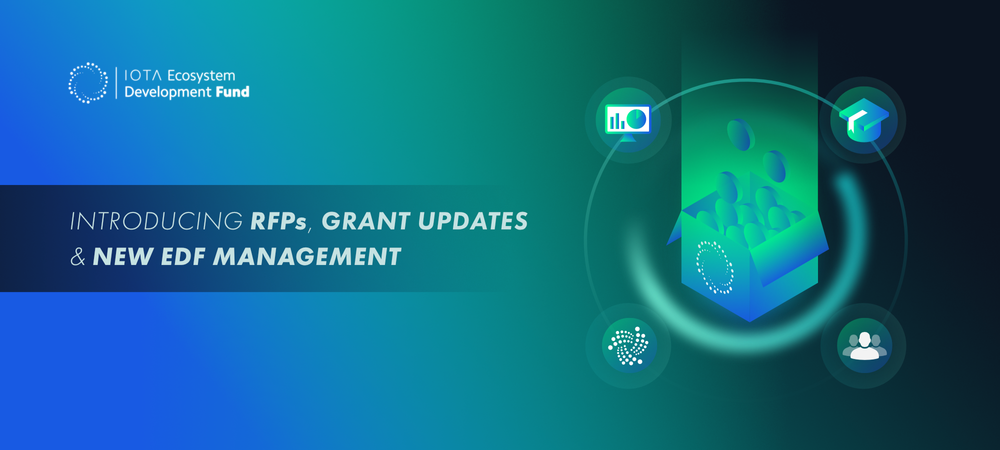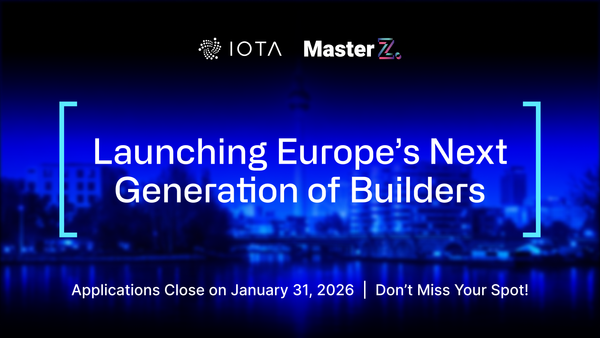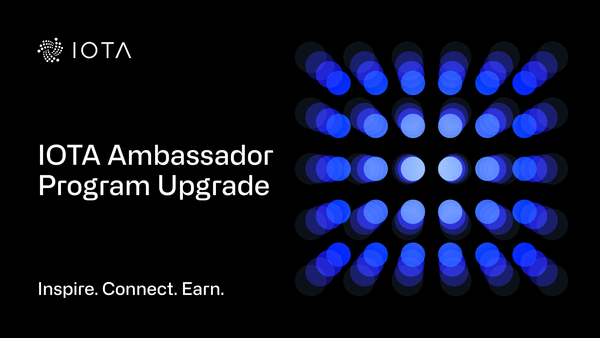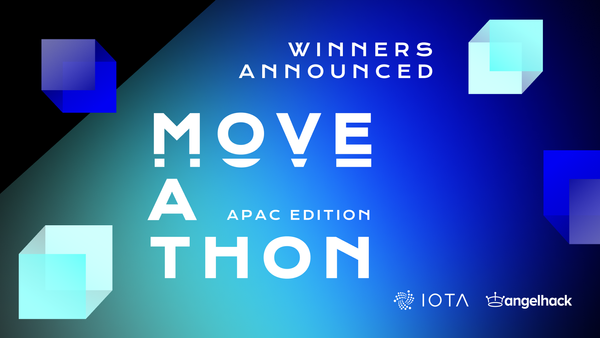Introducing RFPs, Grant Updates and New EDF Management
A lot has been happening behind the scenes at the Ecosystem Development Fund over the past months. We’ve been working on a number of changes to make the EDF more transparent and responsive to the IOTA community.
Most notably we’ve gotten back to everyone who’s submitted a grant thus far to update them on the status of their application. For those whose status is pending, we will be going through the grants in the next few weeks classifying and responding to these applications.
With this blog post, the Ecosystem Team is happy to announce three new grantees. All of whom will improve our understanding of IOTA and the Tangle.
Whether this is through research or through the development of monitoring tools, we are looking forward to seeing the progress these three projects will make within the next few months. We will ensure the community is continually updated on the progress of these grants via blog posts.
UNIO ($98,472)
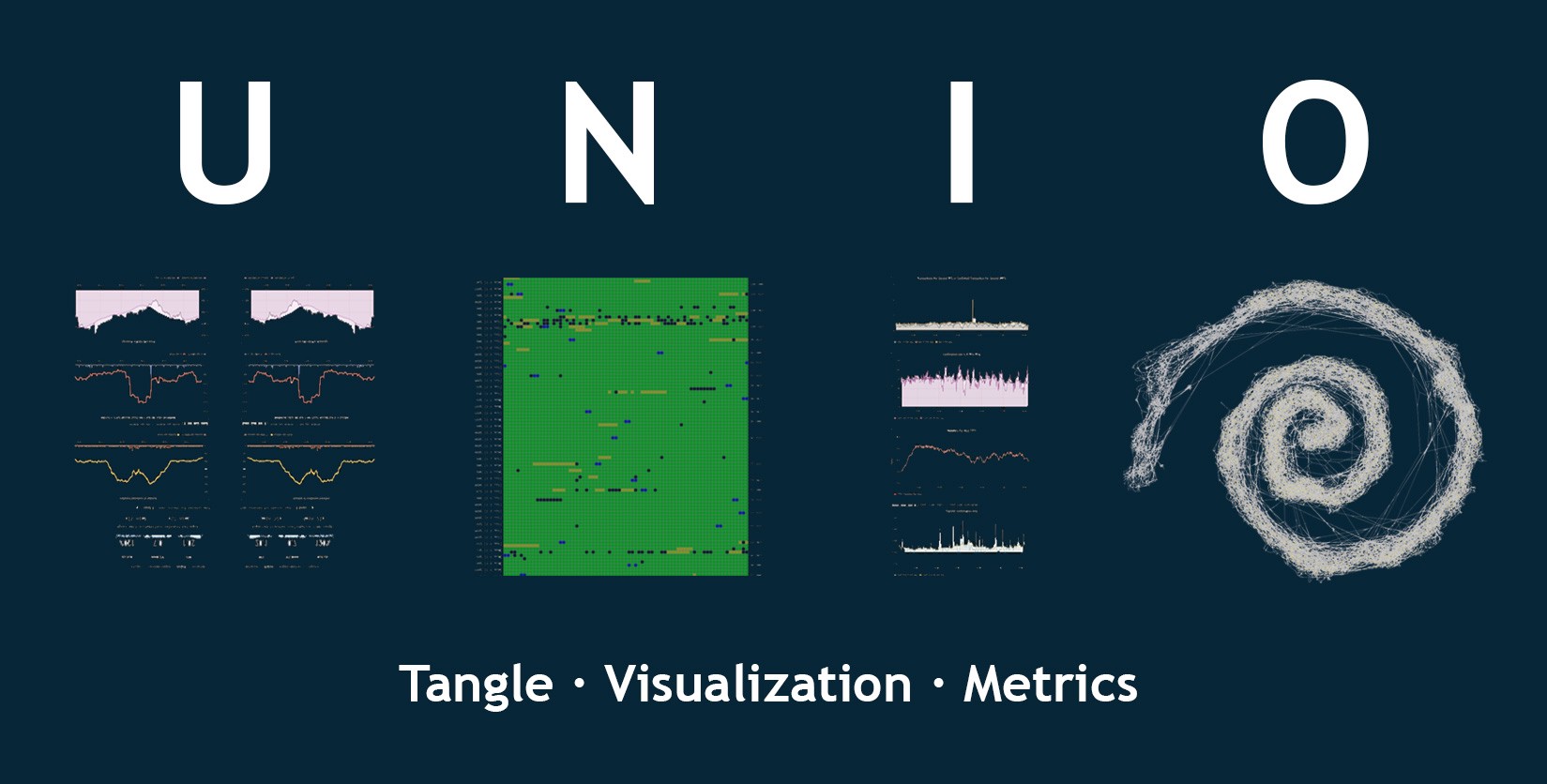
Alexander Ladas (known in our community as cyclux), Maximilian Beck (Maximilian), and Evaldas Drasutis (Lunfardo) are three of the IOTA Ecosystem’s most known Community Developers. Primarily for creating three of the most popular analytical tools within the IOTA Ecosystem — tanglemonitor.com, tangle.glumb.de and traviota.iotalt.com.
As part of the grant, these three tools will be open-sourced, documented, and unified into UNTANGLE IOTA (UNIO).
In this combination, UNIO will be able to ensure data integrity while providing a good overall reflection of the state and health of a Tangle within an intuitive consolidated dashboard. Not only that, UNIO will also provide API access to data for consumption by other applications.
We are very excited to collaborate and combine efforts through the UNIO project! With support from the Ecosystem Fund, we will be able to exploit the full potential of our frequently used Tangle tools. Besides various (performance) improvements and feature additions, a major advantage will be the utilization of a shared backend, which ensures data integrity across all metrics and visualizations. We are also particularly looking forward to release the first open metrics API, including Tangle history. This will not only facilitate retrospective Tangle analysis but will also create opportunities for future projects, which will be able to freely access our APIs. Finally, our goal is to provide valuable data along the progressive development of the Tangle and its implementations, as well as an educational and informational source to represent the Tangle technology.
–UNIO Team
To learn more about UNIO, check out github.com
Green IOTA ($19,800)
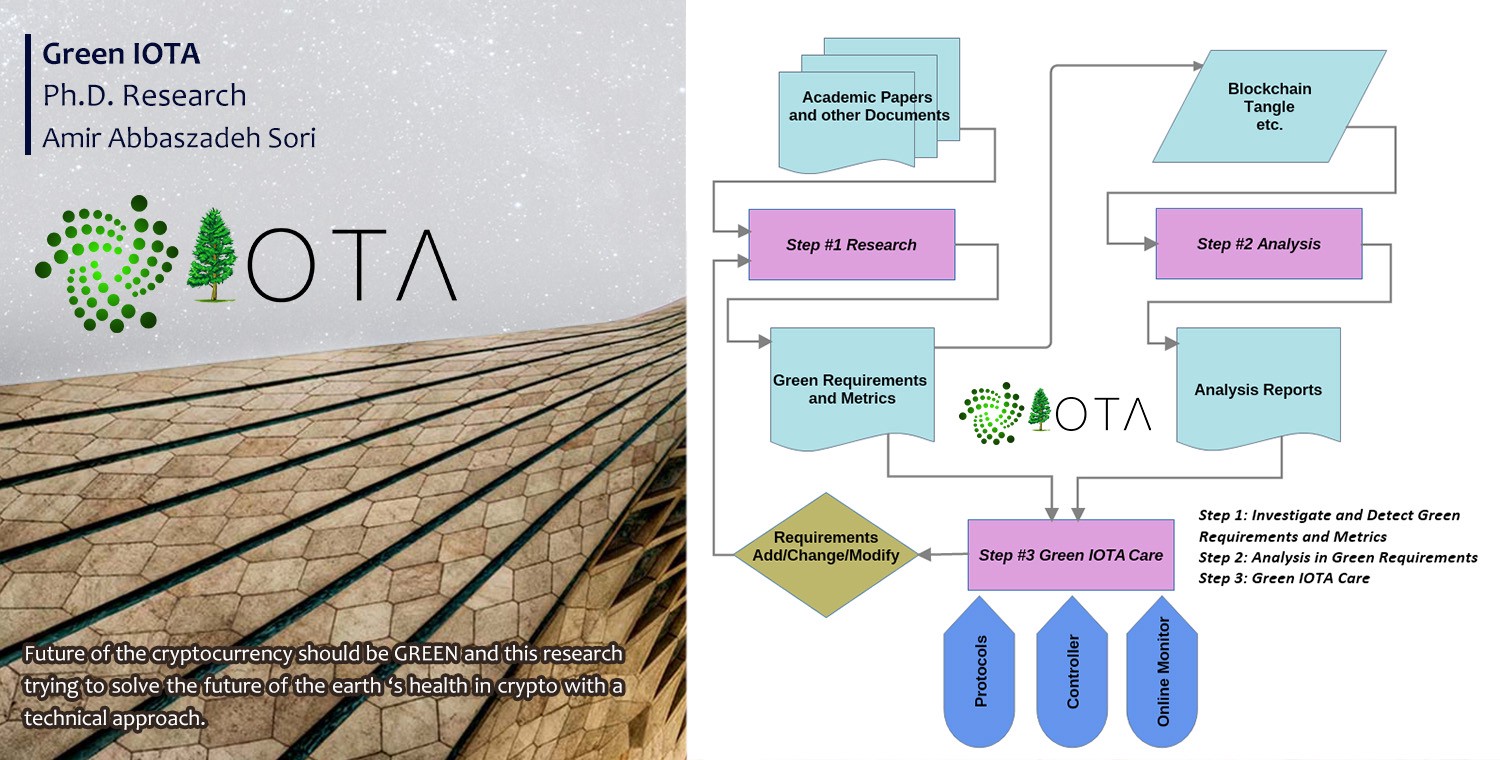
Amir Abbaszadeh Sori is a Ph.D. Student in Software Engineering at Islamic Azad University in Iran and received his M.sc degree in Computer Networks from the Amirkabir University of Technology. In the past, he published and presented several papers about Green Banking, Cryptocurrencies, IOTA, and the Tangle at important events in Iran.
As part of the Grant, Amir Abbaszadeh Sori will focus his Ph.D. thesis on Green IOTA. It aims to investigate and define green cryptocurrency requirements, analyze IOTA and the Tangle within the defined requirements, and provide solutions to reduce energy consumption for computation, storage, and communication.
This research adds a new topic to the IOTA research roadmap and a good step for the future of green efficiency in cryptocurrency scope that is scarce in the scientific community.
Green IOTA aims at providing a solution to reduce energy consumption in computation, storage, and communication, proof that IOTA is green and keeps the earth healthy in payment systems.
A large part of the energy waste in cryptocurrencies is in the mining sector. IOTA does not have this specific problem. Keep in mind that the removal of mining alone will not prevent loss of energy. Note that IOTA has some evident green standards and this research tries to highlight the IOTA's green efficiency and enhance them.
I really appreciate Dr. Serguei Popov and Dr. Moody Alam for their guidance and close collaboration.”
– Amir Abbaszadeh Sori
To stay updated about Green IOTA, bookmark his research on our Ecosystem website: https://ecosystem.iota.org/projects/green-iota
Sebastian Mueller Research Grant ($18,900)
Sebastian Mueller finished his PhD in mathematics 2007 with “summa cum laude” and recently obtained his Habilitation in Mathematics at the University Aix-Marseille. In his career, he worked and lived in 5 different countries, won over 10 prizes and grants, and published over 20 research articles.
As part of the grant, Sebastian Mueller’s research will focus on the “Fast Probabilistic Consensus” (FPC) to investigate mathematical questions, propose different ways of implementing the consensus, but also to perform simulations and optimizations alongside our own research team.
“Randomness is ubiquitous in most aspects of life. The right amount of randomness enables systems to adapt to environmental changes and stressors. IOTA technologies already use the power of randomness at various parts, notably in the construction of the Tangle. At the present moment, validations of transactions in the IOTA Tangle still depend on a centralized and non-random coordinator. The coordicide project aims to eventually remove the Coordinator and replace it with a decentralized validation protocol. This research project aims to find the optimal amount of randomness in a coordinator-free IOTA.”
– Sebastian Mueller
Any grants paid out by the Ecosystem Development Fund are visible on the EDF Transparency Tracker, which stores an immutable record of the agreements on the Tangle.
Alongside an improvement to the way we consume grant applications, we are also introducing requests for proposals on specific topics we see as vital to the IOTA Ecosystem.
Over the last few months, we’ve seen a large variance in submission focus and quality. With the introduction of RFPs, we aim to focus the applications we receive to high-impact areas that we’ve identified. That being said: we are still happy to receive grant applications outside of the RFP areas.
Developer tooling
Over the last three years, the IOTA protocol has matured in leaps and bounds due to the contributions of the IOTA Foundation and its vibrant community. As the protocol matures so does its requirement for a set of open-source tools that enable greater consistency, accessibility, and abstraction when understanding the mechanics of an operating network.
We’ve seen a number of amazing tools emerge from developers within the community. These tools have become a vital part of the development cycle for IOTA Foundation and community developers alike.
The Ecosystem Development Fund is actively interested in ensuring the active development of tools that promote the adoption of the technology. That is why we are requesting proposals for the development of open-source tools that improve the development experience.
Developer Tooling
Digital ID
Identity is a crucial concept that shapes the way in which humans interact with the individuals, companies, and governments around them. As time progresses identity will shift away from centralized or owned identity solutions towards ones rooted in technology that empowers personal ownership of one’s identity.
This will improve the ability to communicate identity in a secure and seamless manner that respects the individual to whom it relates to.
The majority of current identity solutions are based on systems that are owned by corporations or governments. These solutions, such as Facebook LoginorGoogle OAuth, reduce the complexity of managing identity but crucially exclude the individual from owning their identity.
The EDF is seeking proposals for a Digital Identity standard & example implementation that utilizes the IOTA protocol and is compatible with the W3C’s DIDSpecification. This standard should be able to service both machines and humans. Allowing both groups to maintain their own Self-Sovereign Digital Identity as needed.
More information on Digital Identity will be announced in the near future on the IOTA blog.
Decentralised DMP
Looking towards the future, an ever-growing number of devices will be connected to the internet and each other. These devices will have various roles but the majority will be devoted to sensing the environment around them. The real-time information will be a wealth of value not only to the owner of the device but for those who purchase the data coming from this device.
In order to ensure the seamless advertisement and sale of information the EDF is requesting proposals for applications that utilize the IOTA protocol to create a decentralized data marketplace standard, library, and accompanying reference implementation.
Decentralized Data Marketplace RFP
Over the last few months, there has also been a number of structural and management changes around the EDF.
Previously, the development fund was an externally operated entity. This has now changed so that the EDF is now a part of the Ecosystem Department of the IOTA Foundation.
This has helped streamline a lot of processes and reduce duplicated efforts for everyday admins. In addition, we are in the process of re-working the grant application and management process to ensure clear communication to applicants, grantees and alumni. We are also simplifying the website in order to provide a clearer understanding of what the EDF’s purpose is and how to get involved.
Furthermore, Mark Schmidt, who was previously the Community Manager for the Foundation, has changed roles to become the Fund Manager of the EDF.
This means he will take over the daily activities of the EDF from John Licciardello, who has since left the EDF. We are excited for Mark to take on this challenge and given his intimate knowledge of the community we expect him to excel in the role.
Follow us on our official channels and get the latest updates
Discord | Twitter | LinkedIn | Instagram | YouTube

